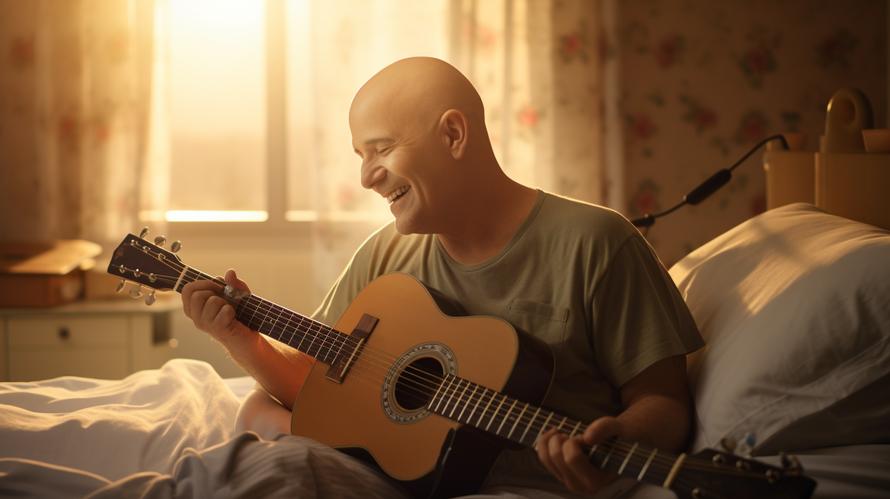It’s a breath of fresh air to discover that sometimes, the best things in life are not only effective but also free. And when it comes to cancer, where treatments can often be harsh and hospital-centric, it’s heartening to know that music therapy holds the power to ease the journey.
Scientific studies have sung the praises of music therapy, highlighting its ability to diminish anxiety and alleviate pain for those battling cancer. Picture this: You’re going through the taxing routines of radiation or chemotherapy, and amidst the clinical coldness, you find solace in the music of your choice. Whether it’s soothing classical melodies or the energizing beats of rock, music is tailored to your taste, cradling your emotions and nurturing your spirit.
It’s not just about relaxation, though that in itself is significant. Music therapy serves as a companion through the tough times, a partner that helps you navigate your hospital visits or brace for the next wave of treatment. Notably, it’s shown to even nudge the numbers in your favor, with subtle yet positive shifts in heart rate, respiratory rate, and blood pressure.
The beautiful thing about music therapy is that it isn’t picky about genre. You might think that soft instrumentals are the go-to, but studies suggest otherwise. Whether you’re a fan of heavy metal or hip-hop, it’s the personal connection to the music that brings the boon.
Now, drop the potential costs and side effects often associated with conventional therapies, and what you’re left with is the pure, healing essence of music. It’s a comforting prospect, knowing that something as accessible and enjoyable as our favorite tunes can play a role in our healing process.
In a world where invasive treatments and medications dominate the narrative of fighting disease, the simplicity and gentility of music therapy offers a humbling and human reminder. It whispers to us that amidst the complexity of medical protocols, there is room for the essence of our very being – our connection to rhythm and sound – to help us heal.
In other related discoveries, advancements in identifying genetic markers for aggressive prostate cancers are paving the way for a future where treatments are more targeted and personalized. Researchers have their sights set on crafting simple blood tests to differentiate between the cancers that demand immediate, aggressive intervention and those that are less threatening.
Imagine the relief, knowing that the war against cancer could be fought with precision, sparing many from the unnecessary trauma of overtreatments which sometimes do more harm than good.
In an unusual twist, man’s best friend has also shown a potential role in cancer detection. Dogs, with their incredible sense of smell, have been found to detect various cancer types, including but not limited to breast, bowel, and colon cancer. Researchers theorize that cancer cells emit chemical compounds detectable in a patient’s breath. The possibility of dogs aiding early detection or perhaps leading to the discovery of these tell-tale compounds is a fascinating frontier in cancer research.
Each of these insights – from the therapeutic symphony of music to genetic markers and canine sniffing skills – illustrates the innovative strides being made in understanding and managing cancer. Hope dances to the tune of progress, and in this melody, we find both comfort and the promise of better days to come.



